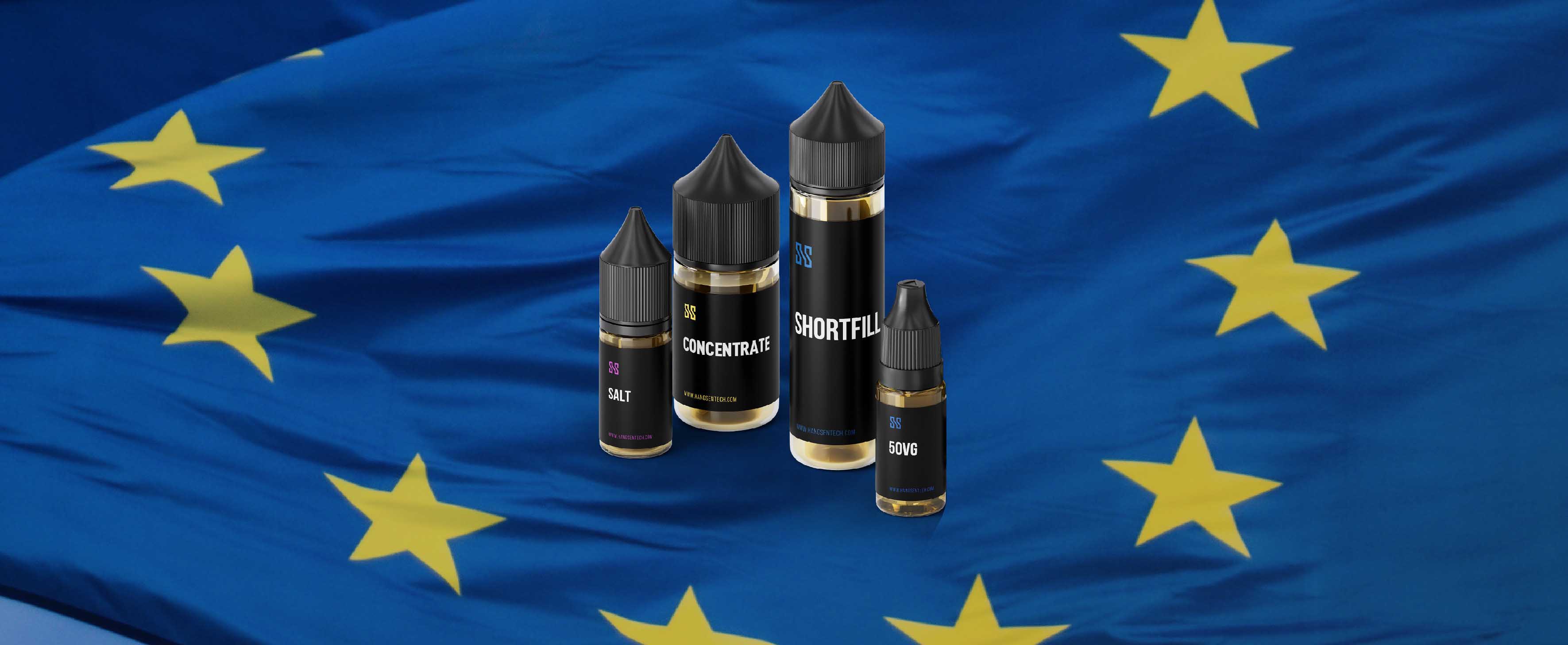

Currently, the European Union does not enforce a uniform vape tax across its member states. Several countries have introduced taxes on e-liquids based on volume, categorizing them under consumption taxes. More than half of the EU's 27 member countries have implemented such taxes, with significant variation in tax rates across the region.
Tax Structures
European countries generally adopt one of four tax structures:
1. Specific Taxation - Fixed amount per unit of product (e.g., per ml).
2. Ad Valorem Taxation - Based on the value of the product.
3. Tiered Taxation - Different rates for different product categories.
4. Mixed Taxation - Combination of specific and ad valorem taxes.
Taxes may apply to all vape products, including devices, accessories, and e-liquids, or only to nicotine-containing e-liquids.
Vape Tax Policies in EU
Below is a summary of the vape taxes in select European countries:
Country | Tax Rate | Notes |
Austria | No specific vape tax; 20% VAT applies. | |
Belgium | €0.15/ml from January 2024 | All products released after January 2024 must bear tax stamps. |
Bulgaria | BGN0.35 (€0.18)/ml, rising to BGN0.45 (€0.23)/ml by 2026 | Applies to both nicotine-containing and nicotine-free e-cigarettes. |
Croatia | HRK0/ml; 25% VAT applies. | No excise tax currently in place. |
Cyprus | €0.12/ml | Applies to both nicotine-containing and nicotine-free e-liquids. |
Czech Republic | CZK2.50 (€0.10)/ml (2024), rising to CZK10 (€0.41)/ml by 2027 | Progressive annual increase planned. |
Denmark | DKK1.50 (€0.20)/ml for nicotine ≤12 mg/ml; DKK2.50 (€0.34)/ml for nicotine >12 mg/ml | Zero-nicotine e-liquids are exempt from taxation. |
Estonia | €0.23/ml (2025), rising to €0.23/ml by 2026 | Excise stamps required. |
Finland | €0.30/ml | Fixed tax rate since 2017. |
France | No excise tax on e-cigarettes; 20% VAT applies. | |
Germany | €0.26/ml (2025), rising to €0.32/ml by 2026 | A significant increase planned over the next few years. |
Greece | €0.10/ml | Introduced in 2017, no change since. |
Hungary | HUF33 (€0.085)/ml | Approximately HUF0.5bn (€1.27m) in e-liquid tax revenue was collected in 2022. |
Ireland | No excise tax on e-cigarettes; 23% VAT applies. | Authorities may introduce a tax by 2025. |
Italy | 15% of cigarette excise duty for nicotine-containing liquids; 10% for nicotine-free liquids | Tax calculated bi-weekly based on the total volume sold. |
Latvia | €0.20/ml | Tax applies to all e-liquids regardless of nicotine content. |
Lithuania | €0.25/ml | Surveillance fee of 0.15% applies to electronic devices used for e-liquid consumption. |
Luxembourg | No specific vape tax. | Only 20% VAT applies. |
Malta | No specific vape tax. | 18% VAT applies. |
Netherlands | No current tax; national tax planned for 2026 at the earliest. | National tax proposal in progress. |
Poland | PLN0.55 (€0.13)/ml | Excise stamps required for products placed on the market after January 2021. |
Portugal | €0.175/ml for nicotine-free; €0.351/ml for nicotine-containing liquids from January 2024 | Excise stamps required; revenue in 2022 was €2.7m. |
Romania | RON0.81 (€0.16)/ml (2024), rising to RON1.03 (€0.21)/ml by 2026 | Progressive increase scheduled over the coming years. |
Slovakia | €0.20/ml | |
Slovenia | €0.21/ml for nicotine-containing; €0.10/ml for nicotine-free e-liquids | Excise duty applies to all e-liquids. |
Spain | €0.15/ml for liquids with less than 15 mg/ml of nicotine, €0.20/ml for higher concentrations. | From 1st April 2025, all vaping products are taxed in Spain. Nicotine-free vaping products are currently not specifically regulated. |
Sweden | SEK2,000 (€184)/l for nicotine ≤15 mg/ml; SEK4,000 (€367)/l for 15–20 mg/ml | Exemption for personal use up to 20 ml. |
Learn more
UK government announces new tax on vaping from 2026
About Hangsen
Hangsen is a leading global manufacturer of e-liquid, offering premium white-label services and custom production solutions. We ensure high standards of consistency, stability, safety, and compliance, serving customers in over 80 countries and regions worldwide.
Feel free to Contact us at service@hangsen.com or leave a message on our Contact page.